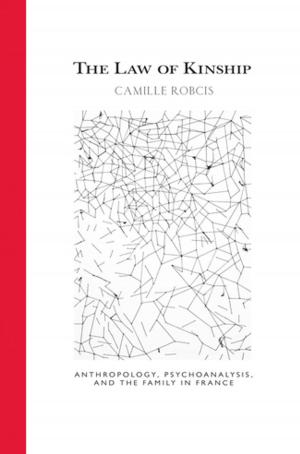Independent Diplomat
Dispatches from an Unaccountable Elite
Nonfiction, Social & Cultural Studies, Political Science, International, International Relations, Biography & Memoir| Author: | Carne Ross | ISBN: | 9780801459580 |
| Publisher: | Cornell University Press | Publication: | February 23, 2011 |
| Imprint: | Cornell University Press | Language: | English |
| Author: | Carne Ross |
| ISBN: | 9780801459580 |
| Publisher: | Cornell University Press |
| Publication: | February 23, 2011 |
| Imprint: | Cornell University Press |
| Language: | English |
Although diplomats negotiate more and more aspects of world affairs—from trade and security issues to health, human rights, and the environment—we have little idea of, and even less control over, what they are doing in our name. In Independent Diplomat, Carne Ross provides a compelling account of what's wrong with contemporary diplomacy and offers a bold new vision of how it might be put right.
For more than fifteen years, Ross was a British diplomat on the frontlines of numerous international crises, including the Israeli-Palestinian conflict, the war in Afghanistan, and the buildup to the invasion of Iraq, over which he eventually resigned from the British civil service. In 2005, he founded Independent Diplomat, a nonprofit advisory firm that offers diplomatic advice and assistance to poor, politically marginalized or inexperienced governments and political groups, including Kosovo, Somaliland, and the Polisario movement in the Western Sahara, as well as to NGOs and other international institutions.
Drawing on vivid episodes from his career in Oslo, Bonn, Kabul, and at the UN Security Council, Ross reveals that many of the assumptions that laypersons and even government officials hold about the diplomatic corps are wrong. He argues passionately and persuasively that the institutions of contemporary diplomacy—foreign ministries, the UN, the EU, and the like—often exclude those they most affect. He exposes the very limited range of evidence upon which diplomats base their reports, and the profoundly closed and undemocratic nature of the world's diplomatic forums.
As a diplomat, Ross was encouraged to see the world in a narrow way in which the power of states and interests overwhelmed or excluded more complex, sophisticated ways of understanding. As Ross demonstrates, however, the reality of diplomatic negotiations, whether at the UN or among the warlords of Afghanistan, shows different forces at play, factors ignored in reductionist descriptions and academic theories of "international relations." To cope with the complexities of today's world, diplomats must open their doors—and minds—to a far wider range of individuals and groups, concerns and ideas, than the current and increasingly dysfunctional system allows.
Although diplomats negotiate more and more aspects of world affairs—from trade and security issues to health, human rights, and the environment—we have little idea of, and even less control over, what they are doing in our name. In Independent Diplomat, Carne Ross provides a compelling account of what's wrong with contemporary diplomacy and offers a bold new vision of how it might be put right.
For more than fifteen years, Ross was a British diplomat on the frontlines of numerous international crises, including the Israeli-Palestinian conflict, the war in Afghanistan, and the buildup to the invasion of Iraq, over which he eventually resigned from the British civil service. In 2005, he founded Independent Diplomat, a nonprofit advisory firm that offers diplomatic advice and assistance to poor, politically marginalized or inexperienced governments and political groups, including Kosovo, Somaliland, and the Polisario movement in the Western Sahara, as well as to NGOs and other international institutions.
Drawing on vivid episodes from his career in Oslo, Bonn, Kabul, and at the UN Security Council, Ross reveals that many of the assumptions that laypersons and even government officials hold about the diplomatic corps are wrong. He argues passionately and persuasively that the institutions of contemporary diplomacy—foreign ministries, the UN, the EU, and the like—often exclude those they most affect. He exposes the very limited range of evidence upon which diplomats base their reports, and the profoundly closed and undemocratic nature of the world's diplomatic forums.
As a diplomat, Ross was encouraged to see the world in a narrow way in which the power of states and interests overwhelmed or excluded more complex, sophisticated ways of understanding. As Ross demonstrates, however, the reality of diplomatic negotiations, whether at the UN or among the warlords of Afghanistan, shows different forces at play, factors ignored in reductionist descriptions and academic theories of "international relations." To cope with the complexities of today's world, diplomats must open their doors—and minds—to a far wider range of individuals and groups, concerns and ideas, than the current and increasingly dysfunctional system allows.















